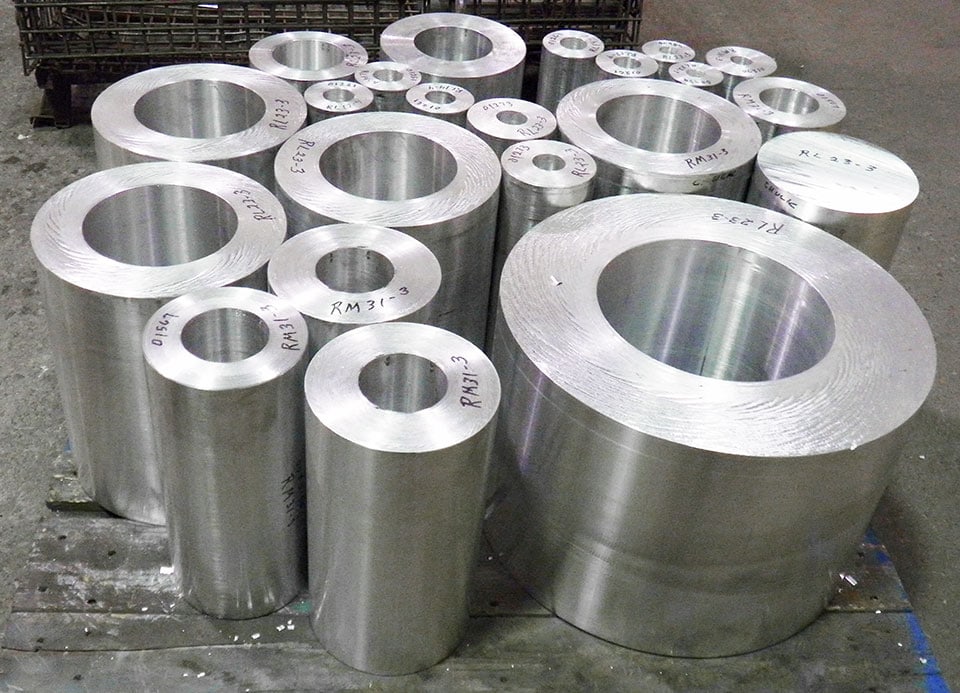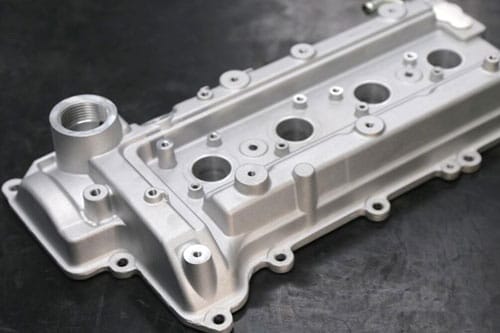The Aluminum Foundry process: from design to production
Wiki Article
The Vital Uses Aluminum Foundry in Various Industries and Their Effect
Aluminum shops work as an essential resource within many industries. Their long lasting and lightweight materials greatly boost efficiency in automobile, aerospace, construction, and electronic devices industries. As each industry leverages light weight aluminum's one-of-a-kind buildings, they likewise add to sustainability initiatives. This multifaceted influence prompts a much deeper exploration of just how Aluminum formed these markets. What specific innovations and benefits develop from its use?Automotive Industry Applications
The auto industry significantly relies upon Aluminum Foundry applications to improve car performance and performance. Aluminum's light-weight nature adds considerably to sustain economy, making it a preferred option for manufacturers intending to minimize exhausts and improve overall car characteristics. Components such as engine blocks, transmission housings, and wheels are generally produced through Aluminum casting processes, enabling for detailed layouts that satisfy extensive security and performance requirements.
Aerospace Innovations

Additionally, using aerospace-grade Aluminum alloys improves resistance to corrosion and fatigue, vital for the demanding atmospheres aircraft face. Developments in additive production additionally enable quick prototyping and personalization of parts, reducing preparations and costs.
Building and construction and Infrastructure
While the construction and framework markets continue to progress, Aluminum factories are increasingly acknowledged for their payments to modern structure practices. Aluminum's light-weight nature and high strength make it an optimal material for various architectural applications. Factories provide elements such as light beams, frameworks, and facades that enhance the longevity and durability of structures and framework tasks.Aluminum's deterioration resistance plays an essential function in expanding the life expectancy of structures subjected to harsh ecological problems. The energy efficiency of Aluminum products likewise aligns with sustainable building efforts, contributing to lower energy intake in construction. Additionally, innovative casting methods have expanded the design possibilities, allowing designers and designers to develop aesthetically pleasing yet practical frameworks.
Electronics Manufacturing
Aluminum foundries play a considerable role in the electronic devices producing sector, where the demand for lightweight and thermally conductive products is paramount. Wisconsin Aluminum Foundry. Components such as heat sinks, coverings, and brackets are commonly produced making use of Aluminum as a result of its outstanding thermal buildings and ability to dissipate heat effectively. This is crucial in electronic tools, where getting too hot can result in failing and reduced performanceThe flexibility of Aluminum permits intricate layouts and specific machining, which are crucial in modern electronics. Furthermore, light weight aluminum's non-magnetic properties make it ideal for applications in delicate electronic devices, reducing interference. Aluminum's resistance to rust boosts the sturdiness of digital elements, making certain longevity and dependability.
Sustainability and Reusing Efforts
Provided the boosting emphasis on ecological responsibility, the Aluminum Foundry market has made considerable strides in sustainability and reusing initiatives. Aluminum is inherently recyclable, allowing foundries to recycle and recover material with marginal energy expenditure compared to main production. This closed-loop recycling procedure not just lowers waste but additionally decreases greenhouse gas discharges, contributing to a more sustainable manufacturing design.Furthermore, lots of factories are taking on energy-efficient innovations, including eco-friendly power resources, to power their operations (Wisconsin Aluminum Foundry). This change not just lowers dependence on fossil gas but likewise enhances total functional efficiency
Market cooperations are additional advertising lasting practices, such as sharing best practices and establishing innovative recycling techniques. By prioritizing these efforts, the Aluminum Foundry industry is positioning itself as a leader in sustainable manufacturing, lining up with worldwide targets for sustainability while fulfilling the needs of Aluminum Castings various industries.

Regularly Asked Inquiries
What Are the Key Advantages of Making Use Of Aluminum in Foundry Processes?
The key advantages of utilizing Aluminum in Foundry processes include its light-weight nature, exceptional rust resistance, high thermal and electric conductivity, and versatility, permitting intricate layouts and reliable recycling, inevitably enhancing total production performance and minimizing prices. - Wisconsin Aluminum FoundryExactly How Does Aluminum Foundry Effect Product Lifecycle Management?
Aluminum Foundry significantly enhances product lifecycle management by allowing reliable product use, minimizing waste, and facilitating recycling. Its light-weight properties boost transport performance, while durability expands item lifespan, eventually adding to sustainability and cost-effectiveness in production.Are There Specific Difficulties in Aluminum Foundry Production?
Particular obstacles in Aluminum Foundry manufacturing consist of managing temperature control, making certain worldly top quality, decreasing waste, and adjusting to changing market demands. These aspects can affect efficiency, price, and overall competition within the sector.What Precaution Are Important in Aluminum Foundry Procedures?
Essential precaution in Aluminum Foundry operations include individual safety devices, appropriate air flow, normal devices upkeep, hazard communication, and emergency situation response training. Executing these practices guarantees worker safety and lessens dangers connected with high-temperature metal handling.Exactly how Does the Expense of Aluminum Compare to Various Other Metals in Foundry Use?
The cost of Aluminum is generally less than that of steels like copper and titanium, making it an affordable selection for lots of Foundry applications. This affordability adds to its prevalent use across numerous sectors.Aluminum factories serve as a crucial source within countless sectors. The auto market increasingly depends on Aluminum Foundry applications to enhance automobile efficiency and effectiveness. The material's recyclability additionally lines up with the industry's push towards sustainability, as recycled Aluminum calls for substantially much less energy to process contrasted to main aluminum. Aluminum foundries play a substantial duty in the electronics producing market, where the demand for lightweight and thermally conductive materials is vital. Offered the increasing emphasis on environmental responsibility, the Aluminum Foundry market has actually made significant strides in sustainability and reusing efforts.
Report this wiki page